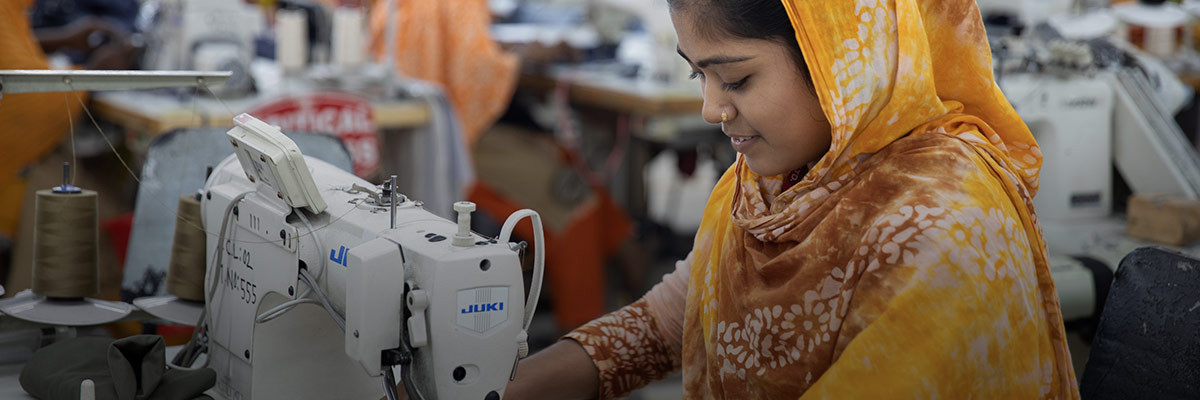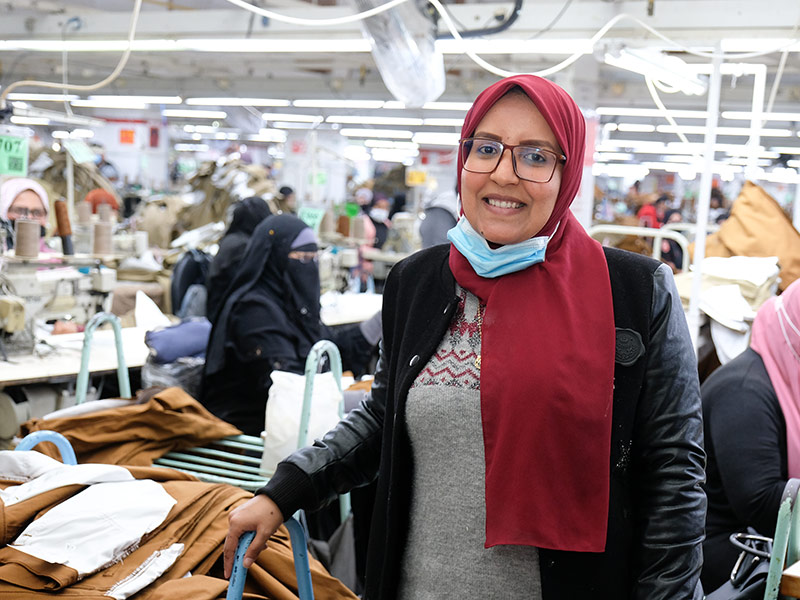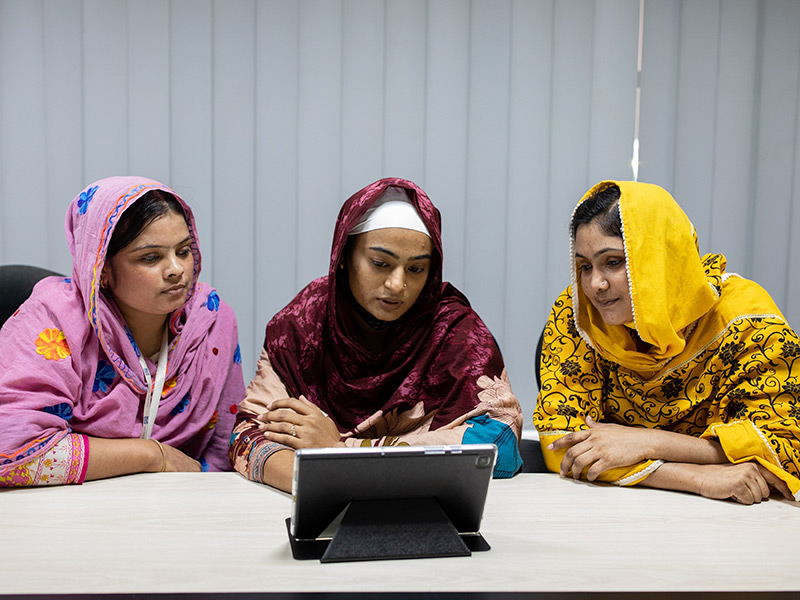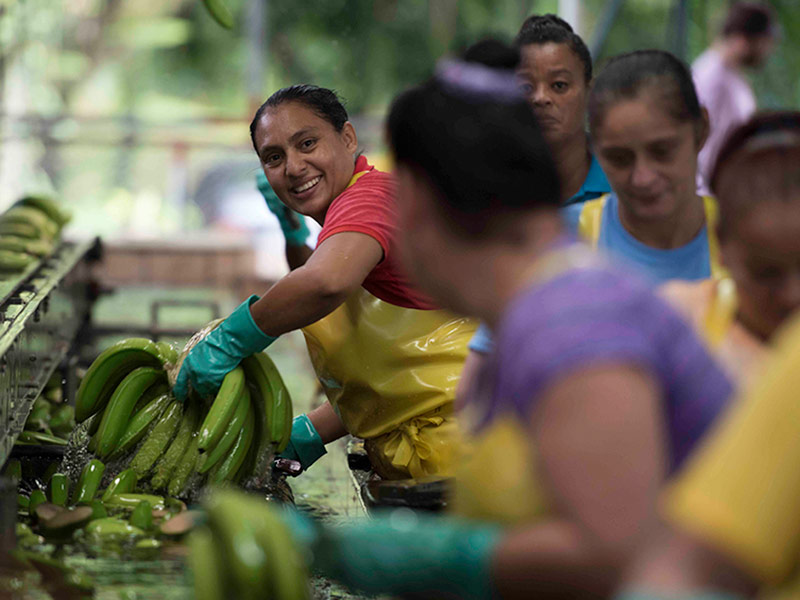
Gender equality can only be achieved when women and girls live free of violence. And as of now, they do not.
Violence against women remains a globally pervasive human rights violation. One in three women worldwide will experience physical and/or sexual violence at the hands of men at some point in their lives. Women experience violence in homes, public places, and the workplace, including factory environments in global supply chains. In India and Bangladesh, for example, around 60 percent of garment workers have experienced sexual harassment in the workplace.
The COVID-19 pandemic has exacerbated these high levels of violence, with lockdowns trapping women in violent relationships. What’s more, women have also lost their jobs and livelihoods at a far higher rate than men.
An effective response to this crisis means widespread change in social norms to prevent it from happening in the first place. Public and civil society efforts and investments are not enough—the private sector must play its part.
In June 2021, BSR, in partnership with the Sexual Violence Research Initiative (SVRI) and global mining company Anglo American, hosted a panel at the Generation Equality Forum on how the private sector can prevent and address gender-based violence. Here are our key takeaways.
The Critical Role of the Private Sector
While governments invest heavily in vital response programs—such as providing critical services like health care, psychosocial support, shelters, and medico-legal services—the private sector can use its reach and influence to focus on prevention.
Prevention programs intervene early. They can include parenting interventions that address violence against both women and girls, school-based programs that address gender equality and violence, and those that aim to shift community-based social norms.
The private sector also has considerable power to change mindsets through large-scale communications campaigns, educating audiences about these prevention programs, why they are important, and the impact they create.
Case Studies in Successful Gender-Based Violence Prevention
Gender-based violence is still a pervasive issue, but several programs demonstrate that, through concerted action, significant progress is possible.
Global mining company Anglo American’s Living with Dignity initiative aims to confront gender-based violence in its host communities and operations and focuses on internal advocacy, evidence-surfacing, and strategic partnerships. It can serve as a best practice example for companies looking to implement similar programs.
Living with Dignity has produced wide-ranging changes in Anglo American’s South African workplaces, which are underpinned by vocal commitment and model behavior from leadership teams. For example, leaders across the business have received coaching on gender-based violence and harassment. And sexual harassment is seeing an increased prominence in meetings across the business and features regularly on leadership calls and town hall agendas.
Cross-sector collaborations also can help take solutions to scale. BSR’s HERrespect program, a HERproject initiative, seeks to encourage gender-equitable attitudes and relationships between women and men in global supply chain workplaces. And its impact has been palpable.
Throughout implementation of the program, HERrespect has driven lower acceptance of violence against women, increased awareness on what constitutes sexual harassment, less acceptance of gender-unequal statements, a greater sense of empowerment in stopping violence, and more awareness on internal support mechanisms for affected women.
For example, at the start of the program, 34 percent of participants believed that there are times a woman deserves to be beaten. At the end, only 15 percent agreed.
Our experience has shown us that gender-based violence is preventable. But to successfully achieve that, a multi-stakeholder approach is necessary—one that includes community-based organizations, researchers, consumers, donors, and, indeed, the private sector.
The socioeconomic impact of COVID-19 on the lives of women has created a sense of urgency for the private sector to mobilize and act. Whether it’s responding to the needs of workers in the workplace or partnering with organizations that conduct research and implement community-based programs, the opportunity for companies to address and prevent gender-based violence is massive. To learn about how your company can get involved in this work and hear from the experiences of this group, reach out to HERproject, SVRI, or Anglo American.
Topics
Collaborative Initiatives
Let’s talk about how BSR can help you to transform your business and achieve your sustainability goals.








